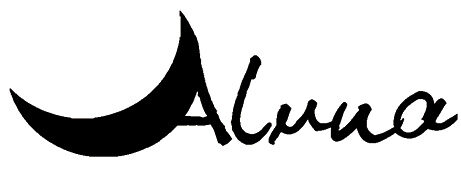Publication Ethics
1. In the review process, the editors of ALUNA Publishing House use procedures aimed at raising the substantive level of the Journal and eliminating unfair publishing practices. These procedures are in accordance with the guidelines of the Committee on Publication Ethics (COPE). Detailed rules of conduct in case of a suspected ethical problem with the reported manuscript as well as in cases such as the unintentional omission of the author, can be found at:
2. The editors of the Journal decide which texts will be published. When accepting texts for publication, the opinions of reviewers regarding the scientific value of the work, originality of the problem and transparency of the argument are taken into account. Aluna Publishing House obeys fair play rules. Race, gender, religion, origin, citizenship or political beliefs of the authors do not affect the assessment of texts in any way. The texts are evaluated only in terms of the content.
3. The editors apply confidentiality rules. Aluna Publishing House does not disclose to unauthorized persons any information about the submitted works. Persons authorized to have this information are: the author, designated reviewers, editors and other persons participating in the publishing process.
4. Unpublished texts cannot be used by the Publishing House employees or any other persons participating in the publishing process without the written consent of the authors.
5. The publisher has the right to withdraw the publication after its publication, if:
· There is evidence that the results are unreliable and/or falsified as well as in the event of unintentional errors (e.g. methodological errors, calculation errors);
· There is a suspicion of plagiarism or the paper violates the rules of editorial ethics
6. The author is committed to the scientific reliability rule. The author is required to provide a reliable description of the performed research work and the objective interpretation of the results. Papers should contain information enabling identification of data sources as well as repetition of tests. Presenting and interpreting data and research results that are inconsistent with the principles of editorial ethics is unacceptable and may result in the text being withdrawn.
7. In accordance with the principle of the originality of the work, the author may submit only own original texts for publication. The research and/or information from other scientists used in the publication should be marked to indicate that it is a quotation. Plagiarism or falsification of data is unacceptable.
8. The author asked to present the raw data of the research used in the text is obliged to provide access to this data, also after the publication of the work. This principle aims to eliminate unfair practices such as data fabrication, plagiarism, as well as ghostwriting, guest authorship, or courtesy authorship. Such cases will be exposed and relevant entities (such as institutions employing the author) will be notified.
9. Authors submitting multi-author texts for publication are required to disclose the contribution of individual authors to its creation (including the affiliation of the authors and information on who is the author of the concept, assumptions, methods, protocol, etc. used in preparing the manuscript). This information will be published together with the article.
10. The author is obliged to list in the bibliography publications that were used to create the text.
11. If the author finds significant errors or inaccuracies in the text, the author is obliged to immediately notify the publisher in order to correct any errors that occurred in the next issue or reprint.
12. Ethical principles apply to all persons involved in the publishing process. By submitting an article to the editor, the authors accept the Publication Regulations. The reviewers agree to comply with the Review Rules.
Consent policy
Authors should follow the principles outlined in the Declaration of Helsinki of the World Medical Association (www.wma.net). The manuscript should contain a statement that the work has been approved by the relevant institutional review boards or ethics committees and that all human participants gave informed consent. Identifying information, including patients’ names, initials, or hospital numbers, should not be published.
Vulnerable populations (children) require special protection during research. Researchers need to consider additional ethics concerns or issues arising from working with potentially vulnerable persons. In cases where research involves potentially vulnerable groups, for example children, older persons or adults with learning disabilities, every effort should be made to secure freely given informed consent that participants or their legal representatives.
Ⓒ 2019 Aluna

